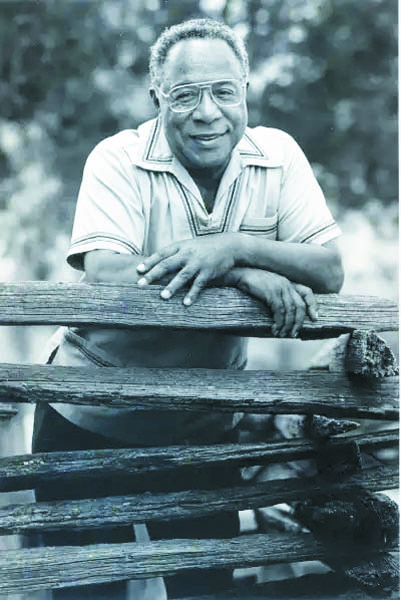‘Heroes’ award
Museum of Appalachia to honor author Alex Haley

ALEX HALEY
Haley, whose bestselling historical novel “Roots” sold more than 15 million copies, will be celebrated by the museum during a banquet and ceremony from 7-9 p.m. Friday, March 1 at the museum, 2819 Andersonville Highway.
Tickets for the charity event are available through the museum’s website (museumofappalachia.org) for $250 a person.
Lamar Alexander, the former Tennessee governor and U.S. senator, will present the award to members of Haley’s family.
Haley once owned property in the area that he purchased from museum founder John Rice Irwin.
The Alex Haley Farm at 1000 Alex Haley Lane, Clinton, is still being operated as a retreat by the current owner, the Children’s Defense Fund.
Haley also was a longtime friend of Irwin, who was introduced to him by Alexander.
“We celebrate Alex Haley because he was God’s storyteller,” Alexander said in an announcement of the award event.
“At the peak of his career when he was perhaps the world’s best-known writer, he sunk his roots into East Tennessee and reminded us to ‘Find the Good and Praise It.’
“He had a kind word for everyone. He left us too soon because we loved him so much that we just used him up,” Alexander said.
Haley is best known for his 1976 Pulitzer Prize-winning book “Roots: The Saga of an American Family.” It also was made into a television mini-series that was seen by more than 130 million people.
Haley’s work is credited with cultivating a widespread interest in genealogy and an appreciation for African American history, the Museum of Appalachia announcement said.
“Haley is a most-worthy recipient of this year’s award,” said Museum of Appalachia Board Chairman Gary R. Wade, a retired Tennessee Supreme Court chief justice.
“Mr. Haley contributed so much to the understanding of both African American and Southern Appalachian culture, and went to great lengths to highlight their intersection,” Wade said. “He found that these cultures are a lot more alike than they are different. It is in the spirit of his motto, ‘Find the Good and Praise It,’ that we honor him with this award.”
When he died in 1992, Haley was writing a book about Southern Appalachia that featured a character based on Steve Parkey, an African American blacksmith from Hancock County whose shop is displayed on the grounds of the Museum of Appalachia, the museum noted.
“Through this book, Haley sought to reshape the image of the mountain people that he had come to know,” the museum’s announcement said. “Six months before his death, Haley told ‘Journal: Appalachia’ that he was ‘irritated’ by the depiction of Appalachia in popular culture. ‘The truth as I have come to know it is so very different,’” he said.
In 1986, then-Gov. Alexander introduced Haley to Irwin, and after a visit to the museum, Haley decided to live in Norris, and bought the farm from Irwin that is now owned by the Children’s Defense Fund.
Past recipients of the “Heroes of Southern Appalachia” award include Dr. Joe Johnson, Jim Hart, Gen. Carl Stiner, and the late U.S. Sen. Howard Baker, R-Tenn.
The museum’s criteria for choosing recipients include honoring a person from the Southern Appalachian region who exemplifies the characteristics of perseverance, fortitude, self-reliance, and service.

